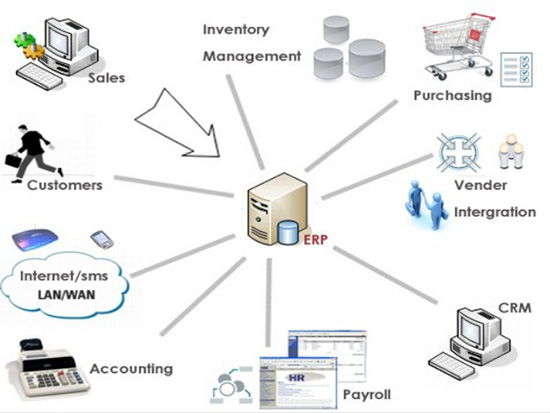The New Enterprise Tools in the Small Business Ecosystem

The leaps and bounds in technology development have meant exciting times for small and medium businesses (SMEs). The playing field has become a more level place to be – small businesses can access resources that used to belong only to the big business ecosystem. So what are the most exciting enterprise tools to make their way into the small business ecosystem?
Big corporations have traditionally been in charge of the data and software solutions available for any business. SMEs have not always had the choice they have now and the reason more opportunities are available is largely down to cloud-based software. Small businesses don’t need to spend a lot of money in expensive infrastructure and hardware that might not be suitable or even align with their objectives. Instead, they are able to look to cloud-solutions that are often scalable and easily aligned with specific business goals.
Here are some of the cloud-based software tools that are making their way to the small business ecosystem.
Enterprise resource planning tools
As one of the earlier solutions available for SMEs, ERP software is still improving and increasing in popularity. The systems make it easier for small businesses to change the in-house servers and desktop applications for cloud-based data centres. It’s almost like the first-step small businesses take when creating a better business environment.
With the help of these tools, businesses can look at the available resources and allocate them better across areas that require more attention. It’s not just about better financial management either, as these tools can allow the better use of talent. By ensuring the right employees are in charge of tasks, which suit them the best, you don’t just improve efficiency and productivity but also employee satisfaction.
Many resource-planning tools are also essential in terms of automation. They can make things like payroll management streamlined – there doesn’t have to be a need for continuous staff monitoring. Small business HR software can ensure more transparency in how the data is handled and managed.
Enterprise analytics tools
Analytics programs are growing in importance and they have the most potential to change how small businesses operate. In fact, it wouldn’t be wrong to say that analytics tools could be the reason SMEs can challenge big business for market space. Before the influx of cloud-based analytics software, data gathering, management and analysis could have cost a company thousands of dollars. Nowadays, businesses can utilise software solutions for a fraction of the cost.
The big benefit of analytics tools is their ability to collect vast amounts of data and then use it to create reports on trends and outliers. This is an important part of making business decisions – they help plan for the future, as well as make decisions on the go.
Enterprise reporting tools
In fact, there are specific reporting tools that can help small business make use of data. The software solutions allow the business owner to create reports on the Key Performance Indicators (KPIs), forecast cash-flow and profit scenarios, and even look at employee performance. Many of these reporting tools work seamlessly with other data collection tools, such as accounting software. This makes it easier to use and you can create reports on a wide range of areas from finance to performance.
Bringing down the cost
What is best about the above categories of products is the availability of different price plans. While many tools were simply out of reach for SMEs in the past, the cost of providing the service has brought down the overall cost. Cloud computing and the efficiency of technology improvements mean that implementing small business HR software won’t cost a fortune any longer.
The positives for small businesses are two-fold. First, companies often get to trial the software before committing to it. This is crucial because it allows testing without the fear of having to stick with something that doesn’t even work. The second positive is the scalability of most of these solutions. Small businesses can start small and the software allows this. However, a small business might not always be small and so the software can grow with the company.
If a small business is to survive in the competitive business landscape, it needs to learn to take advantage of the small things available to it. But thanks to technology, the small business ecosystem is now full of solutions that can help small businesses compete and succeed.
